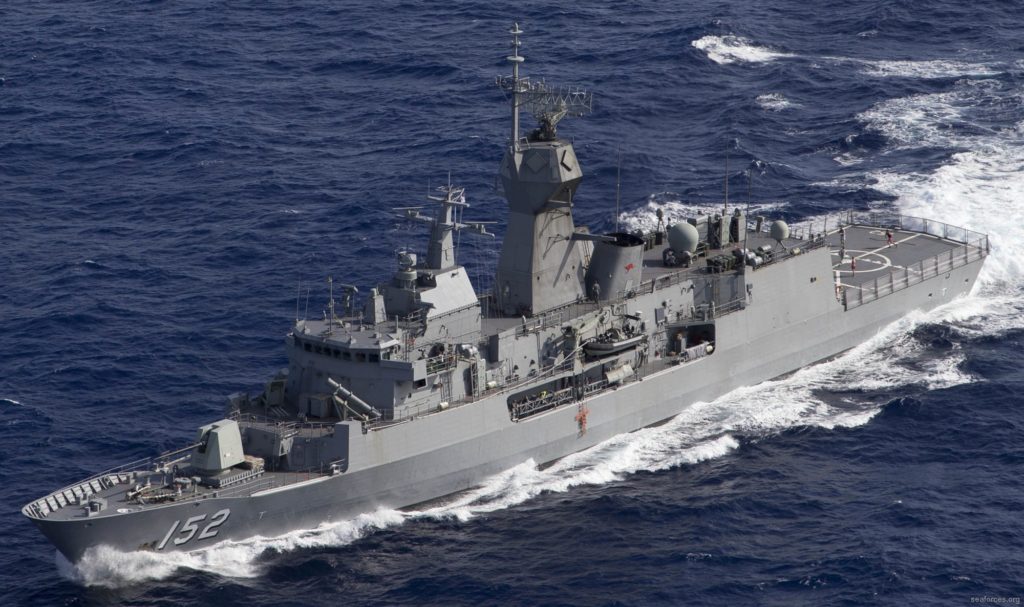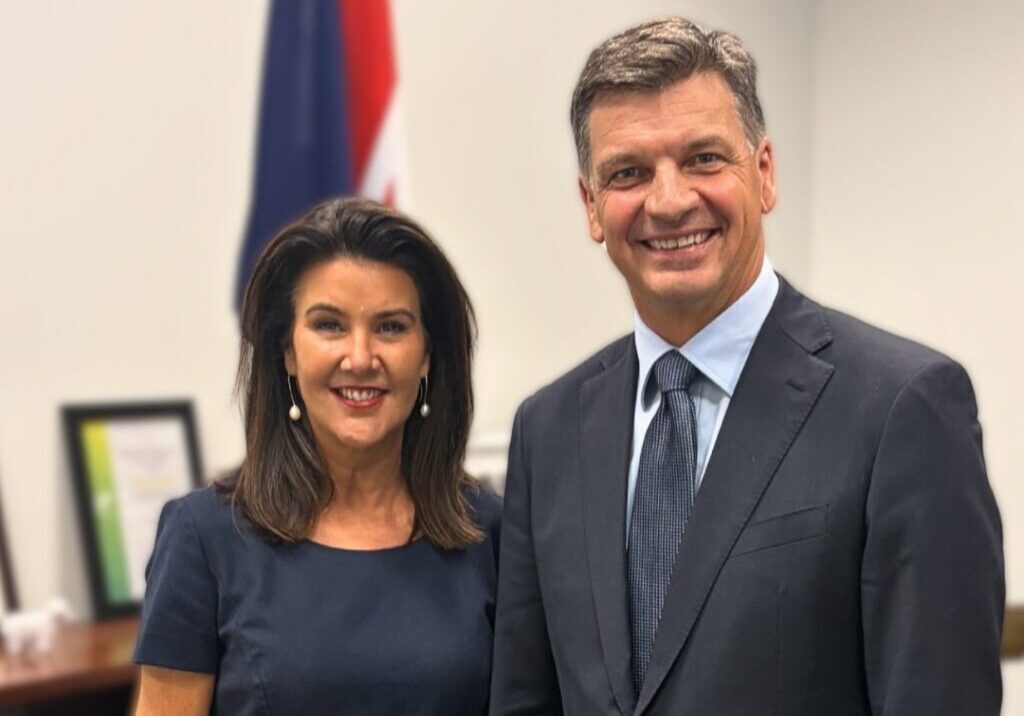Australia/Israel Review, Featured
Editorial: Courageous decisions
Aug 28, 2019 | Colin Rubenstein

The Australian Government’s announcement on August 21 that Australia will join the International Maritime Security Construct in the Persian Gulf to assure the security of merchant vessels in the Strait of Hormuz is a very welcome one.
According to the Government, Australia will contribute “a P-8A Poseidon maritime surveillance aircraft to the Middle East for one month before the end of 2019; an Australian Frigate in January 2020 for six months; and ADF personnel to the International Maritime Security Construct headquarters in Bahrain.”
As Prime Minister Scott Morrison rightly noted, it is definitely in Australia’s national interest to protect global laws around freedom of navigation, especially as 15-16% of crude oil and 25-35% of refined oil destined for Australia travels through the Strait of Hormuz.
This is an important mission because it comes at a time when Iran has been attacking foreign tankers and has been increasing its aggressive moves to gain leverage against the US and push the Europeans into bypassing US sanctions.
The American sanctions are aimed at pressuring Iran to return to negotiations after the US last year pulled out of the Joint Comprehensive Plan of Action (JCPOA) nuclear deal, correctly noting that the flawed deal enabled Iran to develop nuclear weapons when the sunset clauses expire, while continuing to escalate its dangerous ballistic missile program and aggressive support for regional and international terrorism.
Australia’s prudent and courageous decision to join the US-led coalition to protect ships in the Strait of Hormuz sends a clear message to Iran that its aggressive actions will not be tolerated, and that it is in everyone’s interests – including Iran’s – that it return to negotiations with the US to achieve a much better and more comprehensive agreement, which must include measures to prevent Iran from ever acquiring nuclear weapons capabilities.
Australia should now be looking at additional measures to support this aim, such as the autonomous sanctions on Iran flagged by the Prime Minister last December. Just as participation in the maritime coalition in the Gulf is in Australia’s national interest, so too is helping to maximise the international pressure on Iran to end its rogue international behaviour through a new, more effective agreement.
Similar courageous decision-making is also needed with respect to Australia’s support for the UN agency looking after Palestinian refugees – the United Nations Relief and Works Agency (UNRWA).
Disturbing recent allegations of corruption at the agency should prompt UNRWA’s donors, including Australia, to seriously consider the future of the organisation.
UNRWA was established after the 1948 war to assist the hundreds of thousands of Palestinians left displaced by that conflict. But the organisation’s initial role of emergency relief and preparation for resettlement has over the decades become completely politicised.
Today, the agency perpetuates the conflict between Israelis and Palestinians, incites violence against Israelis and ignores international legal precedents. It has created an ongoing crisis whereby up to 5.5 million Palestinians are actively discouraged from getting on with their lives and seeking peaceful coexistence with Israel.
Nearly four million of UNRWA’s “clients” are either Jordanian citizens, or living in the Palestinian territories under Palestinian leadership. They are still being cared for by the UN as “refugees” because the agency remains ideologically committed to the legally-baseless Palestinian “right of return”, and insists no Palestinian descended from a 1948 refugee can ever cease to be a refugee until the “right of return” to ancestral homes inside Israel is granted. UNRWA’s definition of refugee status as automatically passed on to subsequent generations is completely different from how all other refugees in the world are treated.
In May 2018, UNRWA’s biggest donor – the United States – withdrew its funding in response to the agency’s destructive influence on Israeli-Palestinian peace hopes, and other serious problems.
Then, in late July this year, media outlets disclosed a report of serious allegations of bullying, nepotism and gross misuse of funds intended for vulnerable Palestinians by the organisation’s leadership.
Switzerland, the Netherlands and Belgium suspended their donations to UNRWA until the situation was clarified and cleaned up by a UN inquiry.
In response to the recent charges, Foreign Minister Marise Payne’s office told media that Australia would not make changes to its $80 million “strategic partnership” with UNRWA until investigations are complete.
But Australia, as a major donor, should be helping to lead a discussion around the need for UNRWA to be reformed.
Strongly condemning the waste and mismanagement, and then suspending funding until the investigations are complete, would send a strong message that Australian generosity should not be taken for granted.
Further with Australia’s “strategic partnership” with UNRWA set to expire next year, now is indeed the time that the Government is commendably reviewing and reconsidering the efficacy of its aid in the Palestinian territories.
Foreign aid that is used to improve Palestinian living standards is essential to a future two-state peace – especially given the reluctance of the Palestinian Authority and Hamas to prioritise the needs of their respective populations ahead of military expenditure, graft and paying salaries to those perpetrating violence against Israelis.
Overall, future Australian aid to UNRWA should be subject to three conditions.
Firstly, a shift toward a genuine political neutrality by the agency, including a commitment to distribute non-political, non-inflammatory schoolbooks and to audit staff to prevent terrorists infiltrating the agency.
Second, a commitment that UNRWA abandon its political support for the “right of return,” which effectively contradicts the two-state resolution that almost all of UNRWA’s donors support.
Third, a determination that UNRWA will begin a gradual process of transferring its many responsibilities for health, education and infrastructure to other parties, including the Palestinians themselves. Australia could offer to redirect funding to support these new service providers.
Given Australia’s long-standing bipartisan interest in promoting a two-state Israeli-Palestinian peace, Australia now has a unique opportunity to propel reforms at UNRWA – reforms needed to overcome one of the most significant barriers to such a two-state peace.
Tags: Australia, Iran, Israel, Palestinians, UNRWA, United Nations






